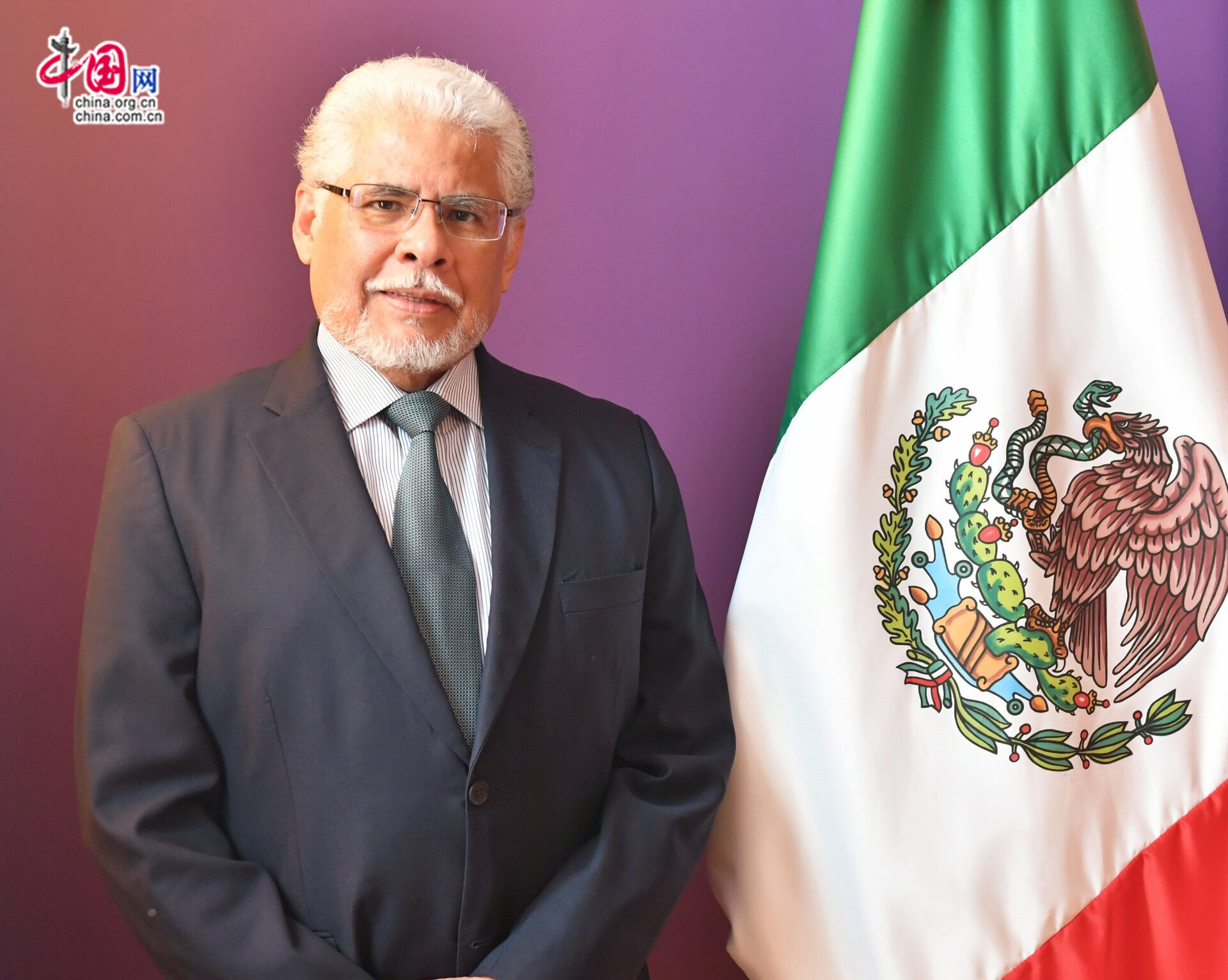[Ambassadors on fighting COVID-19]Mexico values China's anti-COVID-19 experience
China.org.cn ,April 07, 2020 Adjust font size:
 Ambassador of Mexico to China, Jose Luis Bernal recently said in a written interview with China.org.cn about the COVID-19 pandemic. He commended China's response to the outbreak and more importantly, the solidarity that it has shown to severely-hit countries.He alsovalued highly the experience China is sharing with the rest of the world in the fields of control, diagnosis and treatment of the pandemic.
Ambassador of Mexico to China, Jose Luis Bernal recently said in a written interview with China.org.cn about the COVID-19 pandemic. He commended China's response to the outbreak and more importantly, the solidarity that it has shown to severely-hit countries.He alsovalued highly the experience China is sharing with the rest of the world in the fields of control, diagnosis and treatment of the pandemic.

Jose Luis Bernal, Ambassador of Mexico to China
China.org.cn: How do you think the world’s countries should collaborate in the battle against the COVID19 epidemic as it spreads and
becomes a common challenge for the international community?
Jose Luis Bernal:The global implications of COVID-19 should leave us long-lasting lessons in three different levels. The first one relates to the way countries are dealing with the emergency and how the international community is developing a new sense of solidarity and co-responsibility, cooperating with each other to deal with the health contingency. A second lesson has to do with how we cope with the wider economic and social effects of the crisis, and the related disruptions to the international system. And, a third lesson has deeper societal implications: because of the severity of this challenge and lessons learnt, we all -individuals, families and societies- must adopt profound behavioral changes once the emergency is overcome. All this will have, I hope, a big impact on international relations, as we bring into practice new paradigms on development and new formulas for international cooperation.
As we speak, the pandemic of the novel coronavirus COVID19 is affecting practically every corner of the world. We all are feeling the impact of the disease, not only because of its implications on public health but also because of its many global economic and social effects. The main concern is, of course, giving priority to health and sanitary responses in order to save lives, which means preparing the necessary emergency infrastructure, personnel and equipment. Facing these needs require global action based on solidarity and cooperation.
As the pandemic spread to every region, international coordination has become even more urgent and relevant, primarily to face the health emergency, and to develop vaccines and proper medication. At this stage, it is equally important to safeguarding supplies, production and distribution as well as preserving employment and income for all people.
From the very beginning of the outbreak, the World Health Organization has laid down a comprehensive plan to face this daunting challenge through preventative and mitigation policies, based on extensive collaboration and information sharing, coordinating public health national systems, and assisting those countries which are less prepared for this unexpected situation. Furthermore, because of the global nature of the pandemic, every international organization –the United Nations system, development banks, regional organizations, aid agencies, the G20, just to name a few- are proactively working in the search for the responses to the contingency and its aftermath.
In sum, the only way we are going to overcome the current situation is by joining forces together. All nations must come out of this global crisis stronger and with better foundations to pursue sustainable development and inclusive growth. At the same time, measures have to be envisaged now so as to recover growth, restore confidence in the financial system, and rethink production and distribution models for the near future.
China.org.cn: China has kept the concept of humanity's shared future in mind, released information about the COVID19virus in a
timely manner, and shared its experiences related to prevention and control, diagnosis, and treatment since the outbreak emerged.
What is your opinion of these kinds of efforts and contributions?
Jose Luis Bernal: We commend China’s response to the outbreak and more importantly, the solidarity that it has shown to severely-hit countries. Above all, we value very highly the lessons China is sharing with the rest of the world in the fields of control, diagnosis and treatment.
Since mid-January, Mexico has followed closely China's experience in dealing with the epidemic.We have expressed recognition forChinato supply equipment and develop a vaccine against COVID-19. In the last few weeks, Chinese expertshave shared experiences with Mexican health specialists and, acting together with Mexico's Pro Tempore Presidency of the Community of Latin American and Caribbean States (CELAC), via a webinarto learn about China's best practices to contain the pandemic.
We are very appreciative of these efforts and contributions, indeed.
28eb6ffc-aca1-4c1a-9931-156512c92a05.png)
